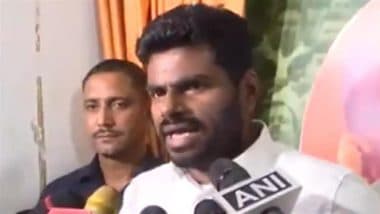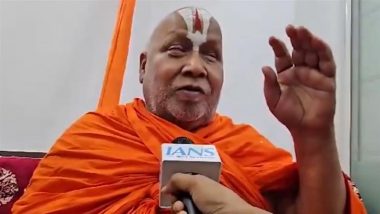The Hague, Dec 11 (AFP) Aung San Suu Kyi is set to speak out in Myanmar's defence at the UN's top court on Wednesday, a day after the former democracy icon was urged to "stop the genocide" against Rohingya Muslims.
Once hailed internationally for her defiance of Myanmar's junta, the Nobel peace laureate will this time be on the side of the southeast Asian nation's military when she takes the stand at the International Court of Justice.
The small African state of Gambia has taken Myanmar to court over a bloody 2017 military crackdown in which thousands of people were killed and around 740,000 Rohingya fled to neighbouring Bangladesh.
Suu Kyi is expected to tell ICJ judges that Myanmar was conducting legitimate operations against Rohingya militants, that it has carried out its own investigations into the bloodshed and that the court has no jurisdiction in the case.
Huge crowds are expected to turn out in Yangon to watch Suu Kyi speak via livestream amid a groundswell of support in Myanmar, where the woman dubbed "The Lady" is still widely loved.
Gambian Justice Minister Abubacarr Tambadou said it would be "extremely disappointing" if Suu Kyi repeated her previous denials of wrongdoing by Myanmar.
Mostly-Muslim Gambia accuses Myanmar of breaching the 1948 genocide convention and has asked the court, set up in 1946 to rule on disputes between UN member states, to take emergency measures to stop further violence.
The 74-year-old Suu Kyi sat impassively through graphic accounts of mass murder and rape on Tuesday as Gambia set out its case against Myanmar.
Tambadou, who said he was inspired to act after visiting Bangladesh in 2018, told the judges on Tuesday that the world's failure to help the Rohingya was a "stain on our collective conscience".
ICJ judges have only once before ruled that genocide was committed, in the 1995 Srebrenica massacre in Bosnia.
The Gambia's lawyers sought to tie Suu Kyi directly into the case.
They said the appearance of huge billboards across Myanmar in recent weeks featuring pictures of Suu Kyi with three smiling generals showed she was "in it together" with the army, whose half century in power was characterised by brutal civil conflicts, biting poverty and isolation.
Suu Kyi's decision to personally lead her country's case at the court has proved popular at home, where the Rohingya are widely regarded as illegal immigrants.
Flag-waving supporters joined rallies in support of Suu Kyi in several Myanmar cities on Tuesday and rally organisers in Yangon told AFP they have permission from authorities to live stream Wednesday's ICJ hearing on a big screen outside the City Hall.
The United States stiffened sanctions against Myanmar's army chief Min Aung Hlaing and three other senior commanders on Tuesday over the killings of Rohingya, to mark International Human Rights Day.
"The United States will not tolerate torture, kidnapping, sexual violence, murder or brutality against innocent civilians," Treasury Secretary Steven Mnuchin said in a statement.
Aung San Suu Kyi was once mentioned in the same breath as Nelson Mandela and Mahatma Gandhi, having won the Nobel in 1991 for her resistance to Myanmar's brutal junta.
After 15 years under house arrest she was freed in 2010 and led her party to victory in elections in 2015.
But her defence of the same military that once kept her locked up has since caused international condemnation.
Myanmar meanwhile faces a number of legal challenges over the fate of the Rohingya, including a probe by the International Criminal Court -- a separate war crimes tribunal in The Hague -- and a lawsuit in Argentina personally mentioning Suu Kyi. (AFP)
(This is an unedited and auto-generated story from Syndicated News feed, LatestLY Staff may not have modified or edited the content body)













 Quickly
Quickly




















